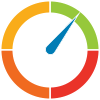HELOC vs. Home Equity Loan: Understanding the Differences and Benefits
As a homeowner, you’ve likely built up a significant amount of equity in your property over time. This equity represents the difference between the current market value of your home and the outstanding balance on your mortgage. Fortunately, there are ways to tap into this equity and access funds for various purposes, such as home renovations, debt consolidation, or even funding a child’s education. Two popular options are home equity loans and home equity lines of credit (HELOCs). Although they sound very similar, there are distinct differences between the two.
What is a HELOC?
A home equity line of credit (HELOC) is a revolving line of credit secured by the equity in your home. It functions similarly to a credit card, allowing you to borrow against your home’s equity up to a predetermined limit. With a HELOC, you can access funds as needed during the draw period, typically lasting 5 to 10 years. During this time, you’re only required to make interest payments on the amount you’ve borrowed. Once the draw period ends, you’ll enter the repayment period, where you’ll need to pay back both the principal and interest.
HELOCs are attractive because they offer flexibility and convenience. You can access funds as needed, making them ideal for ongoing projects or unexpected expenses. Additionally, the interest rates on HELOCs are often lower than those of credit cards or personal loans, making them a more cost-effective borrowing option.
What is a Home Equity Loan?
A home equity loan, on the other hand, is a lump-sum loan secured by the equity in your home. Unlike a HELOC, you receive the entire loan amount upfront and must begin making fixed monthly payments of principal and interest immediately. The loan term is typically between 5 and 15 years, and the interest rate is fixed for the duration of the loan.
Home equity loans are well-suited for larger, one-time expenses such as home renovations, debt consolidation, or significant purchases. Since you receive the funds upfront, you can plan and budget accordingly, knowing exactly how much you’ll need to repay each month.
How is a Home Equity Loan Different From a HELOC?
While both home equity loans and HELOCs allow you to tap into your home’s equity, there are several key differences to consider:
- Disbursement of Funds
- Home Equity Loan: You receive the entire loan amount upfront as a lump sum.
- HELOC: You can access funds as needed, up to the predetermined credit limit.
- Interest Rates
- Home Equity Loan: The interest rate is fixed for the duration of the loan.
- HELOC: The interest rate is typically variable, adjusting periodically based on market conditions.
- Repayment Terms
- Home Equity Loan: You make fixed monthly payments of principal and interest from the start.
- HELOC: During the draw period, you only pay interest on the amount borrowed. Once the draw period ends, you enter the repayment period and must pay back both principal and interest.
- Flexibility
- Home Equity Loan: Less flexible, as you receive the full amount upfront.
- HELOC: More flexible, as you can access funds as needed and only pay interest on the amount borrowed.
Pros And Cons of HELOCs & Equity Loans
When determining whether an equity loan or line of credit is better for your needs, reviewing the pros and cons of each is a good idea.
HELOCs
| Pros | Cons |
| You can access funds as needed, making it ideal for ongoing projects or unexpected expenses. | The interest rate on a HELOC is variable and can increase over time, potentially increasing your monthly payments. |
| During the draw period, you only pay interest on the amount you’ve borrowed, reducing your initial costs. | Once the draw period ends, you’ll need to start repaying both principal and interest, which may result in higher monthly payments. |
| The interest paid on a HELOC may be tax-deductible if the funds are used for home improvements or other qualifying purposes. | Like any loan secured by your home, failure to make payments could result in foreclosure. |
| Typically have lower interest rates compared to credit cards or personal loans. | The flexibility of a HELOC may tempt some borrowers to overspend or take on more debt than they can comfortably manage. |
Home Equity Loans
| Pros | Cons |
| The interest rate on a home equity loan is fixed, providing predictability and stability in your monthly payments. | You receive the entire loan amount upfront, which may not be ideal for ongoing or smaller projects. |
| You receive the full loan amount upfront, making it easier to plan and budget for larger expenses. | You’ll need to start making full principal and interest payments immediately, increasing your initial costs. |
| The interest paid on a home equity loan may be tax-deductible if the funds are used for qualifying purposes. | Like any loan secured by your home, failure to make payments could result in foreclosure. |
| With a set repayment term, you have a clear timeline for paying off the loan. | If you borrow more than your home’s value, you may end up owing more than the property is worth. |
Which is Better: Home Equity Loan or HELOC?
The decision between a home equity loan and a HELOC ultimately depends on your specific needs and financial situation.
- Short-Term or Ongoing Projects: If you have ongoing or short-term projects, a HELOC may be more suitable as it allows you to access funds as needed.
- Large, One-Time Expenses: For larger, one-time expenses like a major home renovation or debt consolidation, a home equity loan may be a better option as you receive the full amount upfront.
- Predictable Payments: If you prefer fixed monthly payments and want to know exactly how much you’ll owe each month, a home equity loan with a fixed interest rate may be the way to go.
- Flexibility and Lower Initial Costs: If you value flexibility and want to minimize your initial costs, a HELOC may be more appealing as you only pay interest on the amount borrowed during the draw period.
Factors to Consider When Choosing One
When deciding between a home equity loan and a HELOC, consider the following factors:
- Purpose of the Loan: Evaluate the specific reasons for borrowing and whether you need funds upfront or on an as-needed basis.
- Repayment Preferences: Determine whether you prefer fixed or variable payments and consider your ability to handle potential interest rate fluctuations.
- Financial Discipline: Assess your financial discipline and ability to manage a revolving line of credit responsibly if you choose a HELOC.
- Interest Rates and Fees: Compare the current interest rates and fees associated with each option to determine the most cost-effective choice.
- Tax Implications: Consult with a tax professional to understand the potential tax benefits of each option based on your specific circumstances.
- Equity in Your Home: Ensure you have sufficient equity in your home to qualify for either a home equity loan or a HELOC.
Is it Hard to Get Approved?
Getting approved for a HELOC or a home equity loan can be challenging, as lenders typically have strict eligibility criteria. Here are some factors that lenders consider:
- Credit Score: Lenders generally prefer borrowers with good to excellent credit scores, typically above 680 or 700.
- Debt-to-Income Ratio: Your debt-to-income ratio (DTI) is a key factor, as lenders want to ensure you have enough income to comfortably make the monthly payments. A DTI below 43% is typically preferred.
- Home Equity: You’ll need to have sufficient equity in your home, usually at least 15% to 20% of the property’s value, to qualify for a HELOC or home equity loan.
- Employment and Income Stability: Lenders will evaluate your employment history and income stability to assess your ability to repay the loan.
- Property Value and Location: The value and location of your property will be considered, as lenders want to ensure they have sufficient collateral in case of default.
To improve your chances of approval, consider the following steps:
- Improve Your Credit Score: Pay down outstanding debts, correct any errors on your credit report, and avoid opening new credit accounts before applying.
- Reduce Your Debt-to-Income Ratio: Pay off existing debts or increase your income to lower your DTI.
- Build Equity: Make additional mortgage payments or wait for property values to appreciate to increase your home equity.
- Provide Thorough Documentation: Be prepared to provide extensive documentation, such as tax returns, pay stubs, and bank statements, to verify your income and assets.
Choosing The Right Option For You
Both home equity loans and HELOCs offer unique advantages and drawbacks, and the right choice ultimately depends on your specific financial needs, goals, and circumstances. If you require a lump sum for a large, one-time expense and prefer the predictability of fixed monthly payments, a home equity loan may be the better option. On the other hand, if you value flexibility and need access to funds on an as-needed basis for ongoing projects or unexpected expenses, a HELOC could be more suitable.
It’s crucial to carefully assess your financial situation, repayment capacity, and long-term goals before making a decision. Additionally, consult with a financial advisor or lender to ensure you fully understand the terms, conditions, and potential risks associated with each option.


